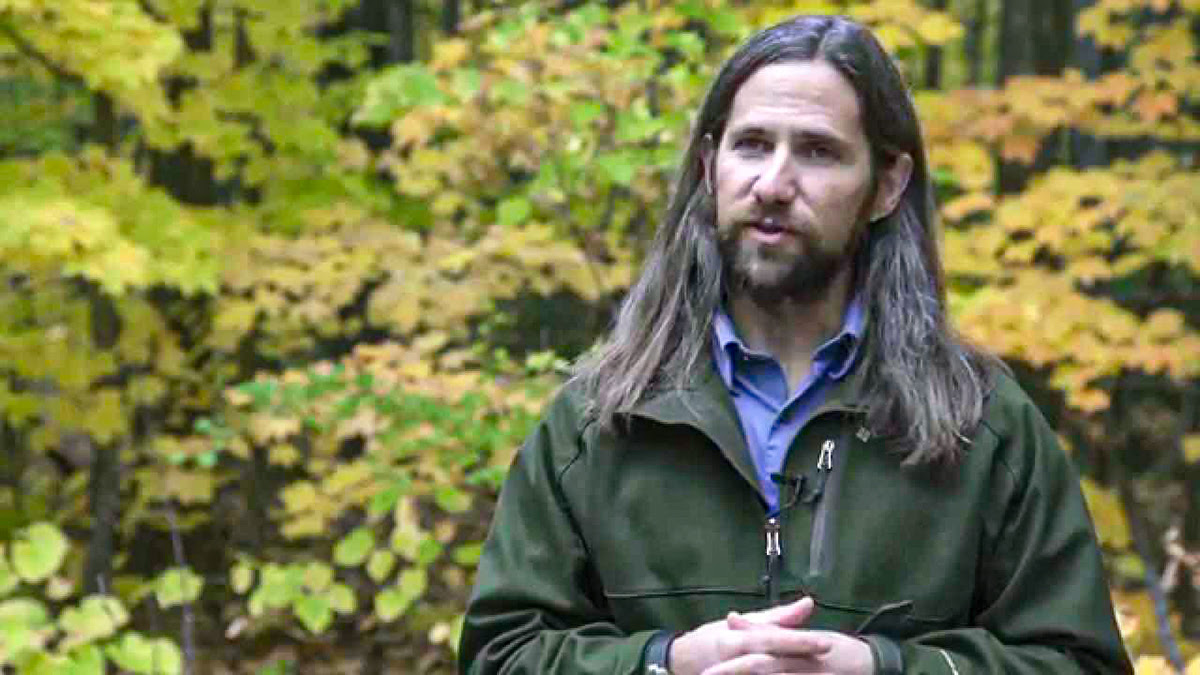A Conversation with Wolf Biologist John Vucetich and Stephen Capra

Vucetich: There are a lot of issues with wolves right now. I am not so sure about the next 5-10 years, but I cannot let myself worry. I see life as what you can do to make a difference. If I am doing the right thing I have a chance to make a difference. I cannot control what happens to wolves. What I can do is my best, so I don’t let it get to me or worry.
Last Wednesday I interviewed renowned wolf biologist John Vucetich, who has spent much of his career studying the wolves of Isle Royale. Vucetich has just released a new book, Restoring the Balance, What Wolves Tell Us About Our Relationship with Nature, Johns Hopkins University Press, available on Amazon or directly from the Press. I wanted to hear his thoughts about the wolf situation and what he has learned after so many years. Here is the interview from my notes paraphrasing our conversation.
Capra: What are your thoughts about state agencies that manage wildlife?
Vucetich: The agencies view wildlife as commodities; they have their interests and it’s built around the premise of wildlife not as living, as much as it is satisfying a specific group. Also, if you look at many of the people in the agencies, they also see wildlife that way. It is part of something they believe in.
Capra: How do you explain what is happening to wolves these days, why are they so persecuted?
Vucetich: Wolves are a symbol, one that people love or hate. There are many factors, but perhaps the largest is the urban/rural divide that allows for a cultural battle, often one that Republicans have used. In the West, that is even more complex as we see the US Government vs. State rights come into clear focus. The arguments for killing are often not rational nor make sense.
Capra: What do you say about trappers who say that wildlife does not feel pain in traps and why do they continue to yield any power?
Vucetich: I like to refer to that as “willful ignorance.” Wildlife feels pain, ask a trapper to put a leg hold trap on his dog and see how they respond? They feel great pain. Trappers continue to thrive because they are constituents of the agencies, they share their values–those of killing, and while they need reform or reconstruction from the ground up, it’s not likely in our lifetime.
Capra: Tell me more about your book?
Vucetich: It’s in many ways a memoir of my time in the field, with some creative writing. It covers many seasons. Part of it also deals with the park deciding whether to return the wolves to Isle Royale. It was controversial to some and their reasoning for the return was not exactly what I would have wanted. I also can see from the field the impacts of climate change on wolves and the land.
Capra: Sometimes when I have dealt with Wildlife Biologists, I feel they are too disconnected from wildlife, not willing to fight. Are you one of those biologists?
Vucetich: I understand that many scientists can be divorced from humanness. We are observers and interference is not part of our role. I do not see myself that way, especially with wolves. Wolves lead fascinating lives, their families and playfulness. They are curious and beautiful; no I feel a strong bond to them. My book tells some of that story.
Capra: Often we use science as part of our argument to save wolves. We talk about Chronic Wasting Disease and the restoration of Yellowstone. What are your thoughts on this?
Vucetich: I see this as more political. I also see it as risky. There can be some evidence that supports wolves and CWD, but it’s not conclusive. When it comes to Yellowstone, I worked on a report that we are still studying on the rise of aspen growth. Many say wolves contributed to it, but we also know that water is the key ingredient and we are still looking at weather patterns and precipitation as possible factors. So again, it’s not always so concrete. Here in Isle Royale, we saw for twenty years that wolves had a direct impact on moose populations. But for the next twenty, they had little or no impact. If we make these arguments they will fail, it’s not a trophic cascade. The most important reason for wolves is that they are living beings. They play an important role in nature.
Capra: During your research did you find yourself having favorite or that you were more emotionally involved with certain wolves?
Vucetich: My care for them was always the same. Sure, some I got to know better, but some of the more elusive, where often very interesting. They have lives and interests, the details of which, for me, is very exciting.
Capra: How do we stay optimistic about wolves and what more can we do?
Vucetich: There are a lot of issues with wolves right now. I am not so sure about the next 5-10 years, but I cannot let myself worry. I see life as what you can do to make a difference. If I am doing the right thing I have a chance to make a difference. I cannot control what happens to wolves. What I can do is my best, so I don’t let it get to me or worry.


